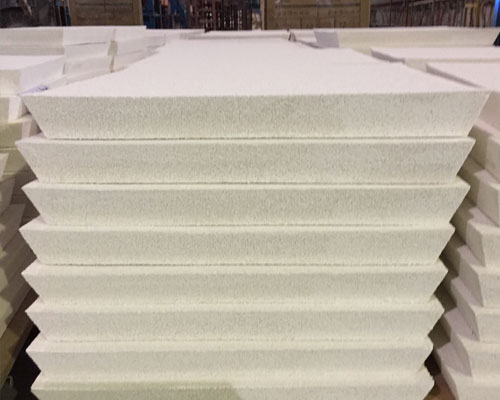In the production of castings, the use of foam ceramic filter metal liquid filtration technology, through mechanical interception, rectification scum, and deep adsorption three filtration purification mechanisms, can effectively reduce or eliminate non-metallic inclusions, purify the liquid alloy. Thereby, foam ceramic filter for metal filtration improves the genuine rate and productivity of the alloy improve the internal quality, working performance, and machining performance of the casting. The development of ceramic foam filters (CFF) has greatly increased the qualification rate of metal smelted products, and its product performance has also been greatly improved.

Aluminum non-ferrous metals do not require high-temperature performance of the ceramic foam filter material due to the low alloy melting temperature, so Alumina Ceramic Foam Filter can be used. Cast iron has high requirements for the high-temperature performance of the foam ceramic filter material, and Silicon Carbide Foam Ceramic Filters are mostly used at present. The casting temperature of cast steel and superalloy is sometimes as high as 1600 ℃, which requires extremely high high-temperature strength, softening temperature, and thermal shock resistance of the foam ceramic filter material, and the Zirconia Foam Ceramic Filter can meet the requirements.
Alumina ceramic foam filter for aluminum alloys is composed of alumina and silica ceramic powder, and then polyvinyl alcohol, silica sol, and water are added to prepare a slurry, and soft polyurethane foam is used as a carrier to impregnate the slurry. It is pressed into a blank, dried, and sintered to obtain an alumina ceramic foam filter.
AdTech alumina foam ceramic filter for aluminum alloys has good high-temperature stability in aluminum alloy melt, does not pollute the alloy, has good filtering and adsorption capacity for oxidized inclusions and flux inclusions in molten metal, and has a good filtering and purification effect. No foam filter piece drops under the impact of thermal stress at 650-720℃, which can effectively reduce the pollution of molten aluminum and improve your products’ surface quality, product performance, and microstructure.

